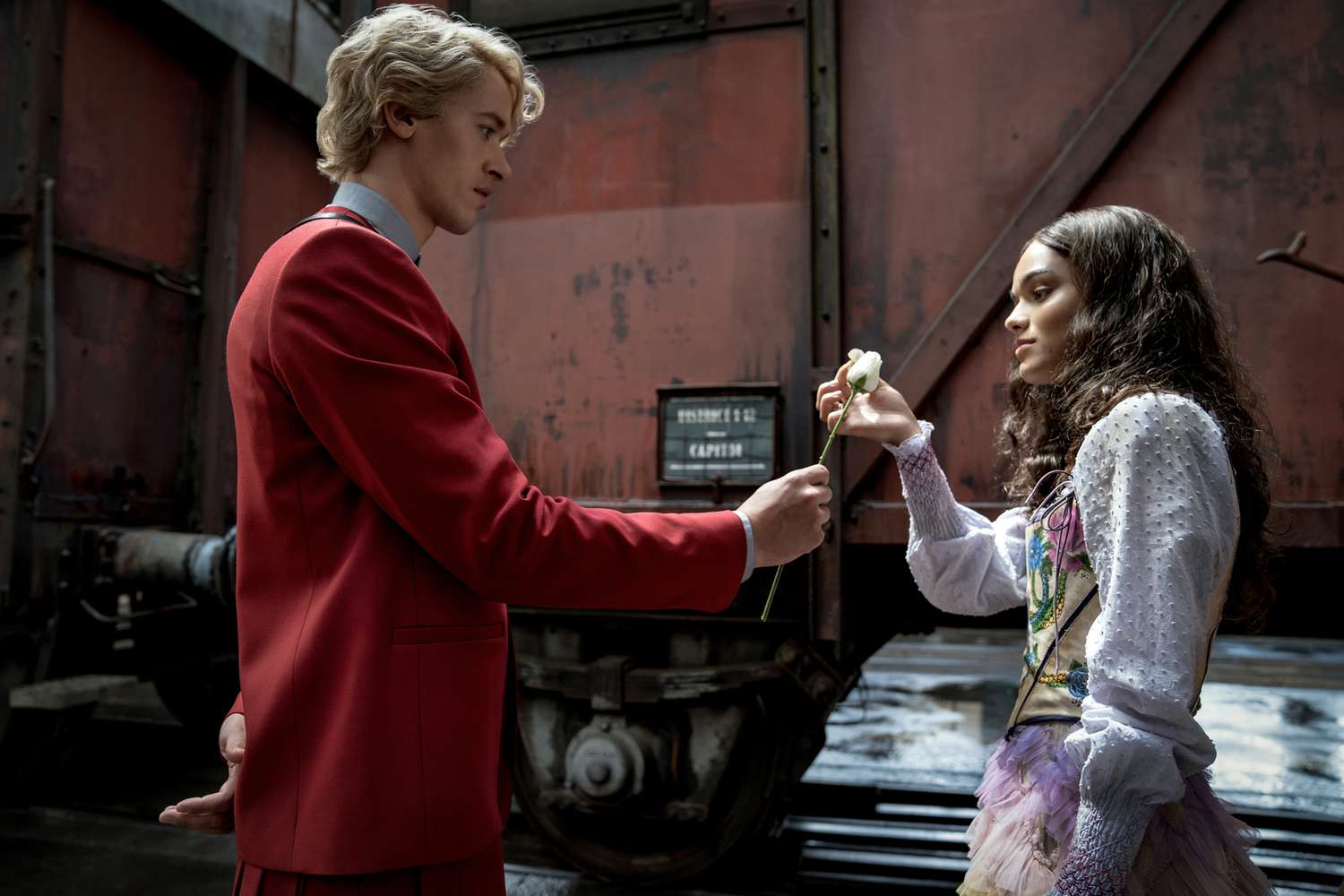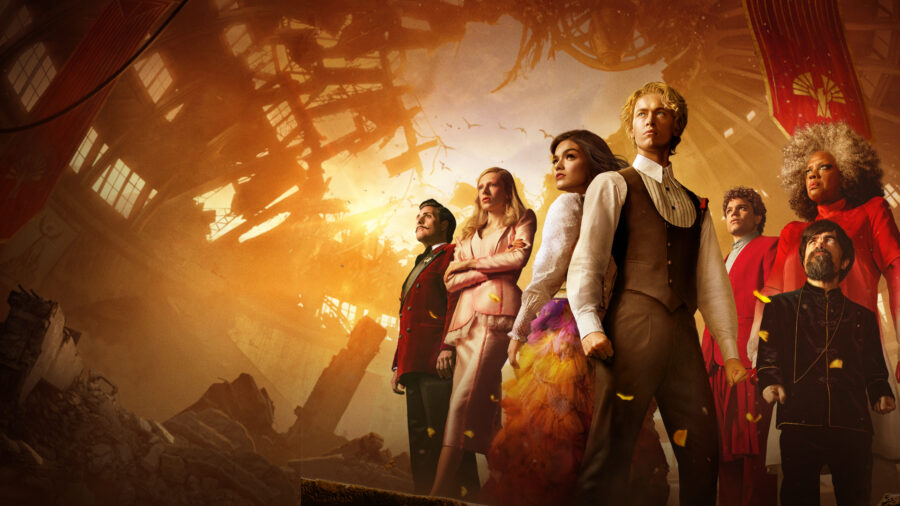Review of The Hunger Games: The Ballad of Songbirds and Snakes
When The Hunger Games author Suzanne Collins published The Ballad of Songbirds and Snakes, a prequel to the 3 insanely popular Hunger Games books, fans were reignited with new material to interact with dissect.
While some series are known for having an unnecessary amount of prequels or sequels that don’t really serve the story, TBOSAS proved to be an integral part of The Hunger Games franchise as it served as an origin story for the tyrannical President Snow, the main antagonist of the original series.
The book, in addition to providing a fascinating insight into Snow’s character, also shed light on the development of the titular Hunger Games and how the games went from an unorganized, barbaric televised slaughter, to an inhumane voyeuristic spectacle rooted in a horrific exercise of power.
Just two years after the book’s publication, the official teaser for the film adaptation was released and stirred up unimaginable excitement in fans who desperately wanted to see this story portrayed on screen since the book’s release.
As casting news spread, the excitement grew exponentially. With all-stars like Peter Dinklage and Viola Davis as well as promising newcomers Tom Blythe and the star of 2021’s West Side Story remake Rachel Zegler, TBOSAS film was set to be the most anticipated Hunger Games film yet.
How did the film live up to the hype? It seems that the odds were not in TBOSAS’s favor. The film is currently the lowest-grossing of the series, only generating $44 million in its domestic opening weekend while the other 4 films all surpassed $100 million.
TBOSAS is also the lowest-rated film of the series thus far scoring a 62% on Rotten Tomatoes while the other films have scored at least a 70%. It is important to note, however, that the audience score for TBOSAS is currently higher than the other films currently standing at 91%.
The film being a prequel is catered much more to the fans and it seems that longtime fans of the series are happy to defend the film despite its severe tonal problems, deviations from the source material, and overall failed execution to deliver on its premise.
We begin with a flashback of young Coriolanus Snow and his cousin Tigress who are later in the film portrayed by Tom Blythe and Euphoria actress Hunter Schafer. The two are seen scouring a war-torn landscape for food only to find a man about to engage in cannibalism.
The two children then arrive back at the Snow estate where they are watched over by their Grandma’am after she announces that Coriolanus’s father has been killed by anti-capitol rebels.
We then jump in time to see a teenage Coriolanus struggling to keep appearances in front of his conceited classmates and even more prominently in front of Dean Casta Highbottom, wonderfully portrayed by Emmy-award winner Peter Dinklage. Highbottom serves as a vindictive rival of Snow’s as he and his father have a bitter history.
Soon after we’re greeted by the unsettling laughter of the vicious Dr. Volumnia Gall whose performance is a contender for the best in the film. This of course comes as no surprise as the psychopathic game maker is played by Academy-award winner Viola Davis.
As it was written in the book, the main narrative throughout the film is the introduction of tribute mentorship during The 10th Annual Hunger Games, a punishment created by the capitol to keep the districts in line after they lost the war.
24 children, one male and one female from each district between the ages of 12 and 18 are pulled from their homes and taken to the capitol to fight to the death in an arena.
With Highbottom out for blood, Coriolanus is designated the “runt girl” of the tributes, Lucy Gray Baird from the destitute district 12. Perfectly portrayed by the young and profusely talented Rachel Zegler, Lucy Gray, a singer from a traveling group known as The Covey must trust Coriolanus and do whatever she can to survive in a world she does not know.

Credit: Lionsgate
Though Blythe’s and Zegler’s performances bring their characters right out of the page, the latter being particularly exceptional, their chemistry isn’t given time to flourish and loses momentum alongside other plots weaved into the film.
The cutting of certain lines, behaviors, and interactions between Coriolanus and Lucy Gray from the book proved to be a distasteful choice as their relationship not only is the most compelling aspect of the story but is essential to the development as its outcome descends Coriolanus into Snow.
A lot of emphasis is placed on Coriolanus’s relationship with his classmate Sejanus Plinth, the son of The Capitol’s president and an ardent advocate for the district’s rights which, of course, makes him a target.
Sejanus’s story is also a heartbreaking one and he does meet the same fate within the book. The way that Coriolanus converses with and relates to Sejanus however was changed in an attempt to humanize him which goes against the exact purpose of the novel.
The film misses the mark on its objective to show the audience how an intelligent, friendly but flawed teenager became a vicious, fascistic, murderous leader. The one that Katniss Everdeen faces off against in the original trilogy (and film quadrilogy).
By the time we see Snow embracing his malice the film ends and we’re left with an infamous quote spoken by the older Snow, played fabulously by Donald Sutherland, reminding us of what’s to come.
The decision that Snow makes when he’s placed in a difficult situation with Sejanus and how it affects his relationship with Lucy Gray serves as the turning point for his character, cementing the evil inside of him and burying any good he possibly harbored.
These moments while intense, don’t fully indulge in their magnitude and fail to understand their centrality to the story. As a result, these pivotal scenes fall short compared to what the book gave us.
There are moments that compel captivation in the arena but these moments are dulled in favor of a quick laugh from Jason Schwartzman’s Lucretius “Lucky” Flickerman. The sinister undertones of The Hunger Games host cracking jokes after seeing a tribute bash another’s head in isn’t coherently communicated in the film and instead create unsettling tonal whiplash.
The film greatly suffers from a misdirection in its juxtaposition of plots. The communications between characters don’t feel additive; they feel contrived and like the writers are trying to cram a 500-paged, complex, detail-oriented novel into a 2-and-a-half-hour movie.
The third Hunger Games novel Mockingjay was a whole 128 pages less than TBOSAS and received a two-film treatment. It’s safe to say that with the success of recent blockbusters Oppenheimer and Killers of the Flower Moon audiences were absolutely capable of stomaching a 3-hour film.
In comparison to the original four films, the first one reaching its 10-year anniversary last year, TBOSAS delivers on its performances but loses its footing in the essence and importance of its story leaving the real magic in the pages rather than fully actualizing them on screen.
Still, there’s plenty for hardcore Hunger Games fans to love. Seeing The Hunger Games in its early years is enough to get your blood pumping and hearing Lucy Gray sing “The Hanging Tree” is bound to give you chills.

